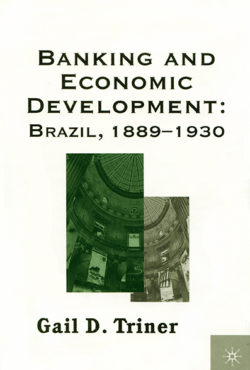Banking and Economic Development: Brazil, 1889-1930
Palgrave/St. Martin's Press
A banking system emerged in Brazil during the early 20th century that was efficiently and productively supported by economic development. However, it also contained the seeds of its future limitations. This banking system did not equalize conditions across sectors or regions as existing theory and historiography anticipated. Deeply embedded institutional constraints limited banking’s contribution to long-term development. The three most important institutional constraints were insecure property rights, continual tension between the system’s public and private sector functions, and competition between the Federal State and the states. Nevertheless, the banking system was an effective tool in the consolidation of an economy of national scope during these crucial years. As a modern banking system emerged, its use in national consolidation both magnified and reflected its limitations.


